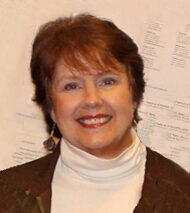
Nancy Huntting, Aesthetic Realism consultant, writes:
You’ll have a big, wonderful, very important experience as you read “Aristotle & Our Own Lives,” the new issue of TRO. How is ethics present in us, and in the world itself? As Eli Siegel looks, with a new depth of comprehension, at Aristotle’s classic work on ethics, you’ll meet an understanding of yourself that’s ever so hopeful! And you’ll be logically swept by Ellen Reiss’s beautiful writing on ethics in nature—spring in New York City. Read “Aristotle & Our Own Lives,” the magnificent current issue of The Right of Aesthetic Realism to Be Known.
The commentary by Ellen Reiss begins:
Dear Unknown Friends:
Here is part 4 of the great 1972 lecture A Poem Is in the World, by Eli Siegel. In it he relates three huge things: 1) what an authentic poem is; 2) what those works called “the great books” have, making them worthy of the phrase; and 3) the structure of the world itself. These large matters, Aesthetic Realism shows, are not fancy things, existing in some territory apart from our daily lives, apart from our agitations, yearnings, thoughts about work and money and love. At the basis of the lecture is this Aesthetic Realism principle: “The world, art, and self explain each other: each is the aesthetic oneness of opposites.”
A Person, Centuries Ago
Thus far in the lecture, Mr. Siegel has been commenting on statements in Mortimer Adler’s How to Read a Book. And in the present section he begins discussing passages from a work about which Adler speaks a little. It is, says Mr. Siegel, “one of the great books, undoubtedly”: Aristotle’s Nicomachean Ethics, written in the 4th century BCE.
Mr. Siegel loved Aristotle. That love is present even as he criticizes some of the Aristotelian statements he’s discussing. I am moved, for example, by these sentences of Mr. Siegel, so casual yet so exact, and, in their exactitude, tender:
But we are with Aristotle. And we have Aristotle trying to express his own feeling, as all writing does, and something about possible good in the world.
That Aristotle—the grand, classical, seemingly forbidding Aristotle—had human feeling which was his own, is not something generally thought of. There is warmth as Mr. Siegel speaks of it quietly, and places it simply with Aristotle’s saying “something about possible good in the world….” Read more